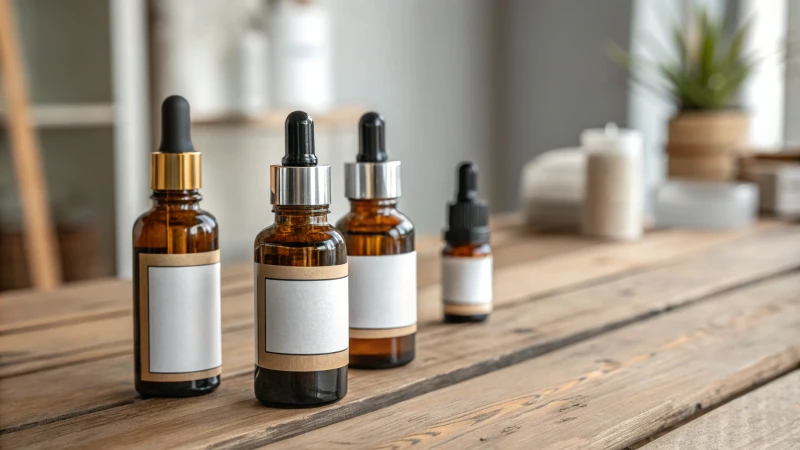
The magic of skincare often lies not just in the potion but in the bottle that holds it.
Sourcing the perfect cosmetic dropper bottles involves understanding your product’s needs, choosing materials like glass or aluminum that fit your brand, verifying quality certifications, customizing for uniqueness, and coordinating delivery schedules to ensure timely launches.
I remember the first time I held a beautifully crafted dropper bottle; it was love at first sight. The design, the weight, the promise it held inside—it was an experience in itself. Choosing the right dropper bottles for my brand felt daunting at first, but it all started with truly understanding what I needed.
From there, selecting materials became about aligning with my brand’s ethos. Did I want the elegance of glass or the eco-friendly appeal of aluminum? Then came the reassurance from quality certifications. It felt like assembling a puzzle where every piece was crucial.
Customization was where I could let my creativity fly, crafting a unique identity that spoke to my customers. And finally, ensuring everything was ready on time meant coordinating delivery schedules meticulously—no missed opportunities here! It might sound overwhelming, but each step was like another brushstroke on a canvas, slowly bringing my vision to life.
Glass dropper bottles are ideal for luxury brands.True
Glass conveys luxury and quality, aligning with high-end brand positioning.
Plastic is the most recommended material for droppers.False
Plastic is less preferred due to perceived lower quality and environmental concerns.
What Factors Influence Dropper Bottle Selection?
Ever stood in front of a shelf, wondering why a bottle design caught your eye? Selecting the right dropper bottle is like curating an art piece for your product.
Product characteristics like viscosity, material choice, and design play a crucial role in choosing dropper bottles. These aspects determine how well the bottle functions, the experience users have, and how your brand stands out, all contributing to your product’s success.
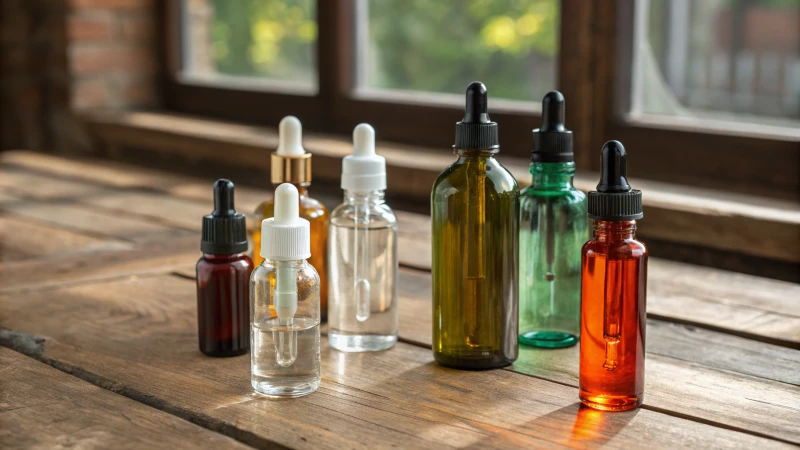
Understanding Product Needs
Dropper bottles must align with the viscosity and ingredients of the product. For instance, a thick serum demands a wide-mouth dropper for easy dispensing, while essential oils benefit from precise control. Providing the product formula to suppliers ensures compatibility between the bottle and dropper1, preventing any potential mismatch.
Material Considerations
The material of the dropper bottle speaks volumes about brand positioning:
| Material | Characteristics | Use Case |
|---|---|---|
| Glass | High-end, durable | Luxury products |
| Plastic | Lightweight, cost-effective | Mass market |
| Aluminum | Environmentally friendly | Sustainable brands |
Aligning material with brand identity is crucial. Glass is ideal for premium items, whereas aluminum suits brands focusing on sustainability.
Quality Assurance and Certifications
Ensuring quality and certification is vital. Products must comply with global standards like ISO or GMP. Request samples to verify the seal integrity2 of droppers and confirm material safety. This step mitigates risks of counterfeit certificates and guarantees compliance with international regulations.
The Role of Customization
Customization enhances brand recognition and competitiveness. Tailored designs, colors, and components create unique identity:
- Customized components: Consider unique glass tubes or metal caps for a luxurious feel.
- Brand differentiation: Custom designs can increase product market value by 10%-20%.
This personalization not only boosts aesthetic appeal but also aligns with market trends favoring distinctive packaging.
Logistics and Delivery Management
Understanding delivery cycles is essential to prevent missing peak sales seasons. Partnering with suppliers experienced in global logistics can avert delays. Prioritize those who offer transparent delivery timelines and stable export experience3. This approach is especially crucial given current global supply chain uncertainties.
Choosing the right dropper bottle is more than just picking a container—it’s about crafting an experience that reflects your brand’s essence. By aligning bottle selection with your product’s characteristics, you not only enhance user satisfaction but also build lasting brand loyalty.
Thick serums require a narrow-mouth dropper.False
Thick serums need wide-mouth droppers for easy dispensing.
Aluminum bottles are ideal for luxury brands.False
Glass bottles are preferred for luxury products, not aluminum.
What Are the Material Options for Dropper Bottles and Their Benefits?
Ever felt like you’re standing in an aisle, staring at dropper bottles, and wondering which one won’t just hold your product but elevate it?
Dropper bottles come in glass, plastic, and aluminum. Glass exudes luxury and resilience, plastic offers affordability and versatility, while aluminum stands out for its eco-friendly credentials and sleek look.
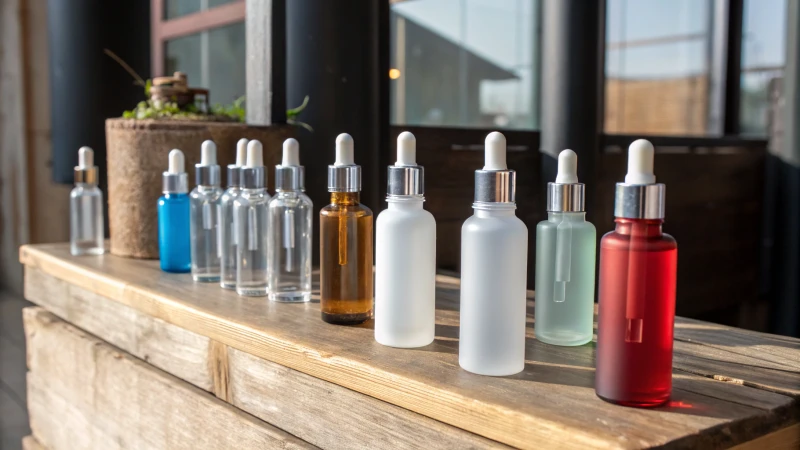
I remember the first time I found myself tangled in the web of dropper bottle choices. It felt like being a kid in a candy store but with a lot more pressure! Let me share what I’ve learned along the way.
Glass Dropper Bottles
Choosing glass dropper bottles is like opting for a classic black dress—timeless and sophisticated. I love how they carry this aura of luxury that resonates with high-end products. They’re not just pretty faces either; they guard against chemical reactions like knights protecting their kingdom. When I decided to use them for essential oils, I felt secure knowing my precious blends were safe. Plus, customizing these with a frosted finish added that personal touch I was after.
| Benefits | Considerations |
|---|---|
| High-end appearance | Higher transportation cost |
| Chemical resistance | Fragility |
| Customizable design | Weight |
Plastic Dropper Bottles
Oh, the charm of plastic bottles! They’re like the reliable friend who’s always there when you need them. Lightweight and easy on the wallet, these bottles are perfect for reaching a wider audience without breaking the bank. I experimented with various shapes and colors, which was as fun as picking out a new wardrobe. However, I had to keep in mind that they weren’t as resilient to chemicals as their glass counterparts.
| Benefits | Considerations |
|---|---|
| Lightweight | Less chemical resistant |
| Cost-effective | Not as premium looking |
| Versatile designs | Environmental concerns |
Aluminum Dropper Bottles
Aluminum bottles are like that eco-conscious friend who always has great tips on sustainability. They’re recyclable and align perfectly with brands looking to make a green statement. I was thrilled by their modern vibe and UV protection—perfect for sensitive formulations. The cost can be a bit higher, but I found it worthwhile for the peace of mind they bring to eco-friendly products.
| Benefits | Considerations |
|---|---|
| Eco-friendly | Higher cost |
| Recyclable | Limited design options |
| UV protection | Need inner coating |
In the end, it’s all about aligning the bottle with your brand’s values and your product’s needs. Whether you’re going for opulence with glass, practicality with plastic, or sustainability with aluminum, understanding these options helps tailor your choice to fit your vision perfectly.
Glass bottles offer the best chemical resistance.True
Glass provides excellent protection against chemical reactions, ideal for sensitive products.
Plastic dropper bottles are the most eco-friendly option.False
Aluminum bottles are more eco-friendly due to their recyclability.
Why Is Quality Certification Crucial When Sourcing Dropper Bottles?
Ever wondered why those little dropper bottles need such rigorous certifications? Well, let me tell you, it’s more than just a piece of paper. It’s about trust, safety, and ensuring your product stands out for all the right reasons.
Quality certification ensures dropper bottles meet industry standards, guaranteeing safety, compliance, and reliability. Certifications like ISO and GMP validate a supplier’s commitment to high-quality production, minimizing risks of contamination or defects.
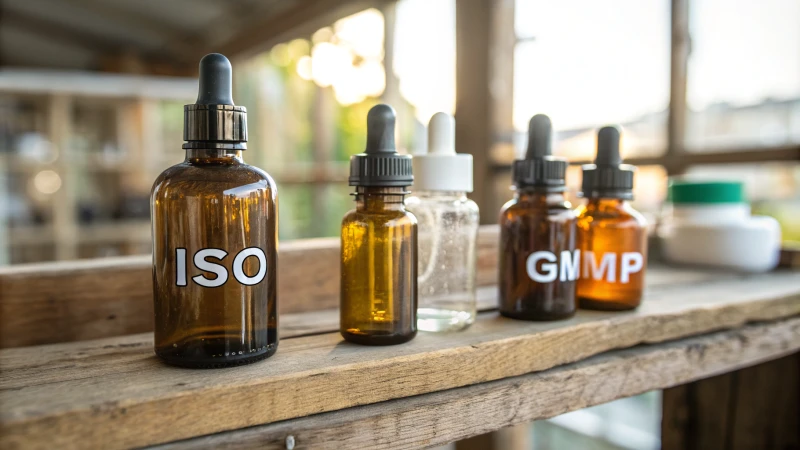
Understanding Quality Certifications
When it comes to sourcing dropper bottles, I’ve learned that quality certification is something you just can’t overlook. You see, certifications like ISO (International Organization for Standardization) and GMP (Good Manufacturing Practices) aren’t just fancy terms—they’re the gold standard in ensuring that what you’re getting has passed some pretty rigorous quality checks. I remember when I first started sourcing these bottles, it was overwhelming. But understanding these certifications gave me peace of mind that the products would meet high standards.
Benefits of Certified Dropper Bottles
- Product Safety: When I think about safety, I want to make sure the dropper bottles I choose have undergone strict testing to avoid any contamination. After all, preserving the product’s efficacy is crucial.
- Regulatory Compliance: It’s not just about making sales; it’s about ensuring that what I’m offering complies with international regulations—especially if you’re looking at markets in the EU and North America.
- Reliability: Certified products are generally more reliable, which means fewer customer complaints and a stronger brand reputation. Trust me, dealing with fewer complaints makes a huge difference!
How to Verify Certification Authenticity
One thing I always do is ask for the latest third-party inspection reports from suppliers to make sure I’m not getting duped by fake certificates. It’s a critical step to maintain compliance and avoid potential pitfalls. If you’re interested in digging deeper into verification processes, exploring third-party audits4 is a good start.
| Certification | Description |
|---|---|
| ISO | Ensures quality management systems are in place |
| GMP | Focuses on ensuring safe and effective products |
Risks of Skipping Certification
Skipping certification might seem like a shortcut at first, but I’ve seen firsthand how it can lead to issues like leakage or contamination, which can really damage a brand’s credibility. There’s a case study of a skincare brand’s loss due to uncertified packaging you might find eye-opening here5.
Choosing the Right Supplier
In my experience, when choosing a supplier, it’s vital to prioritize those who can provide documentation and show a history of compliance with quality standards. Visiting trade fairs or conducting Google searches using phrases like "certified cosmetic packaging suppliers" has helped me find reliable partners.
By employing these strategies, I’ve been able to select suppliers who align with my quality expectations and protect my brand from potential risks. For further guidance on sourcing strategies, you might want to check out this resource6.
ISO certification ensures quality management systems.True
ISO certification confirms adherence to quality management standards.
Uncertified dropper bottles are guaranteed contamination-free.False
Uncertified bottles may not meet safety standards, risking contamination.
How Can Customization Enhance Brand Differentiation in Packaging?
Ever felt lost in a sea of similar products? Packaging could be your lifeline! Customizing it not only sets your brand apart but creates unforgettable moments for your customers. Curious how? Let’s dive in.
Customization in packaging enhances brand differentiation by allowing me to craft designs, choose materials, and create messages that resonate with my brand’s identity, boosting recognition and offering a memorable customer experience.
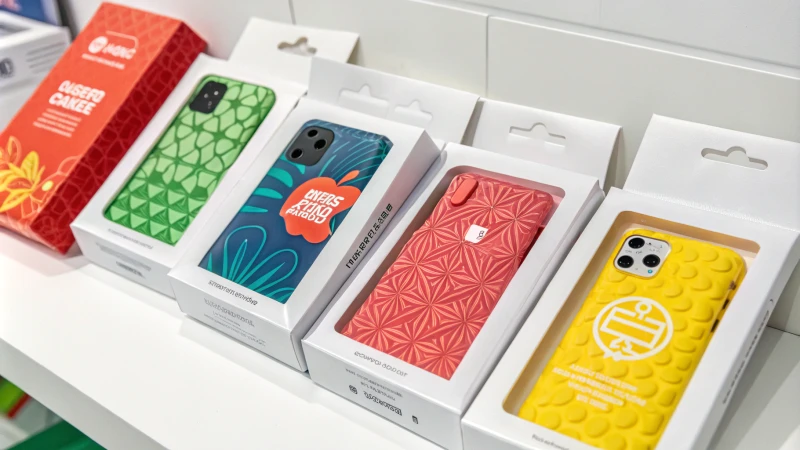
Tailoring Design to Brand Identity
I’ve found that customizing packaging design to fit my brand’s identity is like painting a canvas that tells my story. Whether it’s picking the perfect color scheme, slapping on a logo, or playing with typography, each choice can make my products instantly recognizable. For instance, choosing the right color palette7 that aligns with my brand’s ethos can really shift how customers see my products.
Example: Coca-Cola’s Personalized Bottles
Remember when Coca-Cola launched the "Share a Coke" campaign? They printed names on bottles, and it was genius! People flocked to buy them, not just because it was Coke, but because those bottles felt personal. It was a masterclass in using design customization to create an emotional bond and boost sales.
Material Selection and Sustainability
Choosing the right materials for packaging isn’t just about look and feel—it’s about values. When I opt for eco-friendly materials, it’s like I’m putting my brand’s green thumb on display, attracting consumers who care about sustainability. For instance, selecting sustainable materials8 such as bamboo or recycled plastics can truly set my brand apart as one committed to eco-friendly practices.
| Material | Brand Alignment | Example Brand |
|---|---|---|
| Bamboo | Eco-friendly, natural appeal | Seventh Generation |
| Recycled Plastics | Sustainable focus | Patagonia |
| Glass | High-end, premium feel | Jo Malone |
Message and Storytelling through Packaging
Packaging is more than just pretty wrapping; it’s a chance to share my brand’s story. By customizing the messages on my packaging, I can communicate directly with my customers about what matters to my brand. Adding personalized messages or unique product facts can enrich their experience and reinforce loyalty.
Think about how leveraging storytelling9 on packaging can work wonders. Brands like Innocent Drinks use playful text on their labels, connecting with customers in a way that feels personal and genuine.
Enhancing Customer Experience
Customization goes beyond looks and materials; it also boosts functionality. Imagine designing packaging that’s not only attractive but also easy to use—like an ergonomic design that fits perfectly in a customer’s hand. Exploring ergonomic design10 could be the secret sauce that makes my product stand out from the competition.
Custom packaging isn’t just about catching eyes on a store shelf; it’s about creating memorable interactions. Each time someone opens one of my packages, they experience the essence of my brand firsthand, building deeper connections and loyalty.
Custom packaging improves brand recognition.True
Tailored designs align with brand identity, making products recognizable.
Eco-friendly materials don't affect brand perception.False
Sustainable materials align brands with green practices, attracting eco-conscious consumers.
Conclusion
Sourcing cosmetic dropper bottles requires understanding product needs, selecting appropriate materials, ensuring quality certifications, customizing designs for brand identity, and managing delivery schedules for timely launches.
-
Explore how different dropper designs accommodate various liquid viscosities to ensure smooth dispensing. ↩
-
Learn about the importance of seal integrity in maintaining product quality through certified standards. ↩
-
Understand the benefits of partnering with experienced exporters to ensure timely delivery. ↩
-
This link offers insights into the verification process, preventing reliance on potentially fake certificates. ↩
-
Learn from real-world examples to understand the risks associated with uncertified packaging. ↩
-
Discover strategies for locating reliable suppliers to ensure quality in your product packaging. ↩
-
Discover color palettes that enhance brand identity by evoking specific emotions or values. ↩
-
Explore sustainable material options for eco-conscious packaging solutions that align with green branding. ↩
-
Learn how brands use storytelling in packaging to create deeper connections with consumers. ↩
-
Find out how ergonomic designs improve user experience and set products apart. ↩



